How To Stop a Lab Puppy From Biting? [guide]
Lab puppies are the definition of cuteness. But they are not always the angels they seem! What can you do when your Labrador puppy develops a biting habit?
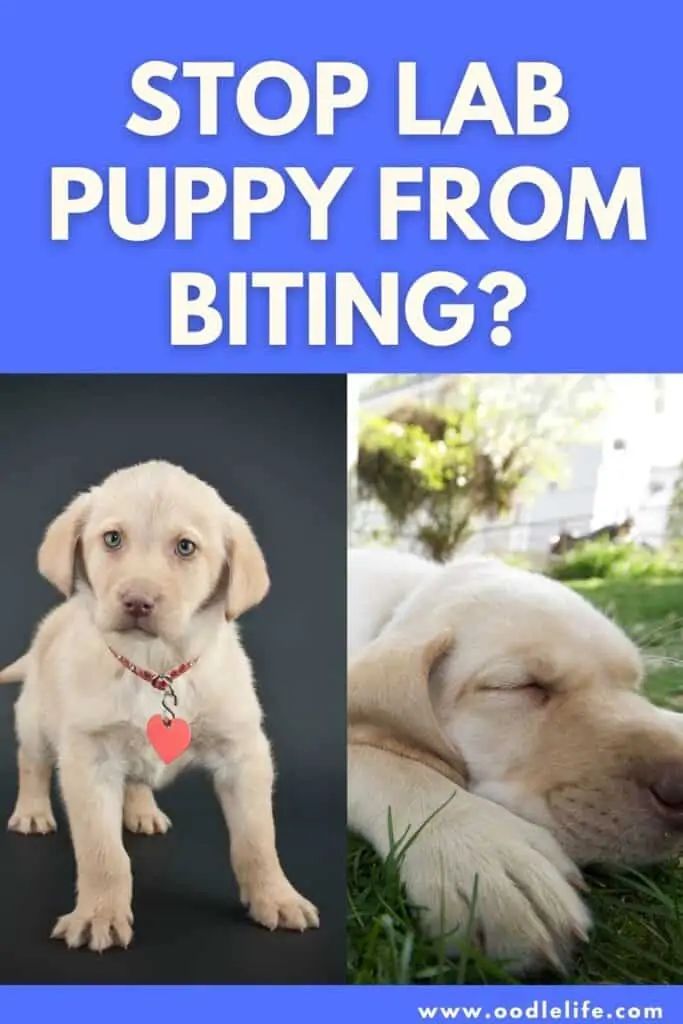
These adorable little guys possess some not-so-good behaviors, especially during the first few months of their lives, a major one being biting. Those teeny tiny Lab teeth can’t seem to stay away from your couch, pillows, shoes, or anything else within their reach.
At first, it may seem cute, but it can be irksome, especially when your pup starts destroying things around your house or even begins biting you. Read on to learn some valuable tips on how to train your Labrador puppy to stop biting.
What Causes Puppy Biting?
Like any other naughty behaviors your puppy may have, knowing the triggers for puppy biting is the first step towards regaining control of your furry little pal’s behavior.
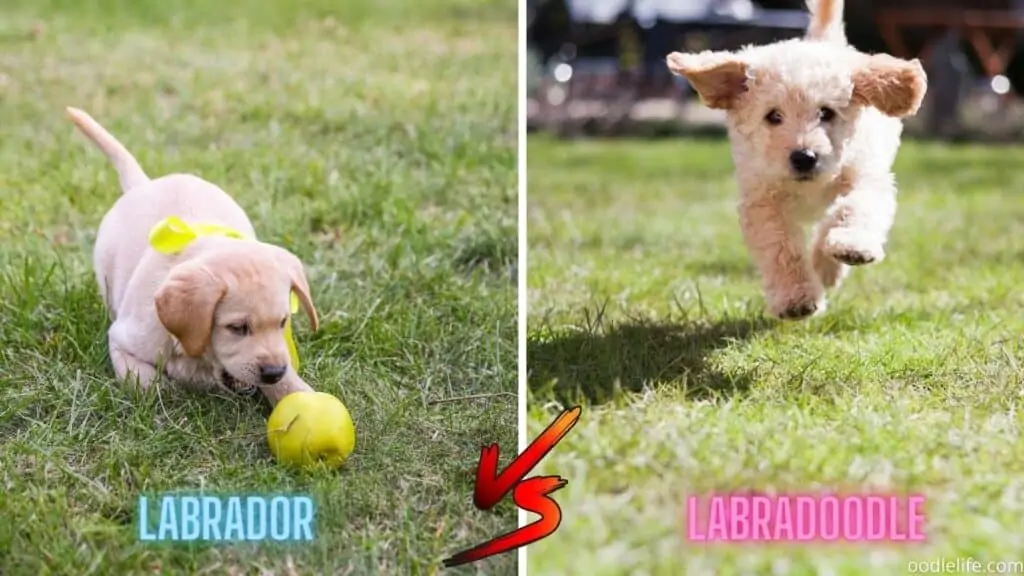
It’s Just Part of Growing Up
Like human infants, dogs also go through a teething phase as part of their growth and development. Teething in puppies often starts when they are approximately three weeks old. By the time they are six weeks old, these little guys will have all 28 deciduous teeth.
When your pup is around 12 weeks old, it will start shedding these teeth, paving the way for the permanent teeth to grow. You may notice these teeth around your home, but most likely, your furry little friend will swallow these teeth while eating.
Your puppy tends to chew on everything because the teething process is quite uncomfortable and painful. That is why it will bite and nip on anything to try and relieve that pain. You may also notice your pet drooling excessively and not eating much during this phase.
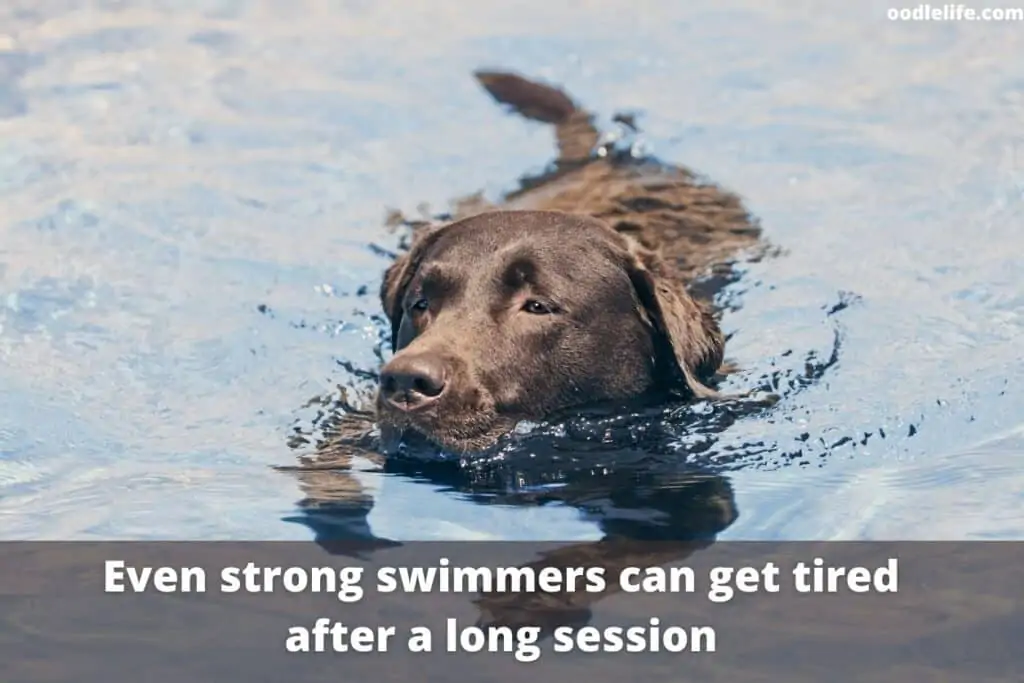
Your Puppy Is Exploring Its Surrounding
During the socialization stage(which is from 4 to 12 weeks of age), puppies tend to bite and nip as a way of exploring their environment.
At this stage, your pup will chew anything out of curiosity and to test its social boundaries. That’s why it is recommended to start training your pet to stop biting during this period.
Separation Anxiety
Puppies and older dogs who suffer from separation anxiety mostly exhibit destructive behaviors such as excessive biting. Separation anxiety is basically when your puppy becomes agitated, anxious, or depressed when you prepare to leave, or you have already left.
Puppies with separation anxiety mostly bite, chew, and even dig through doors and windows in an attempt to escape from their ‘cages’ to follow their owners. This can lead to them injuring themselves (such as breaking their teeth) if it’s not addressed.
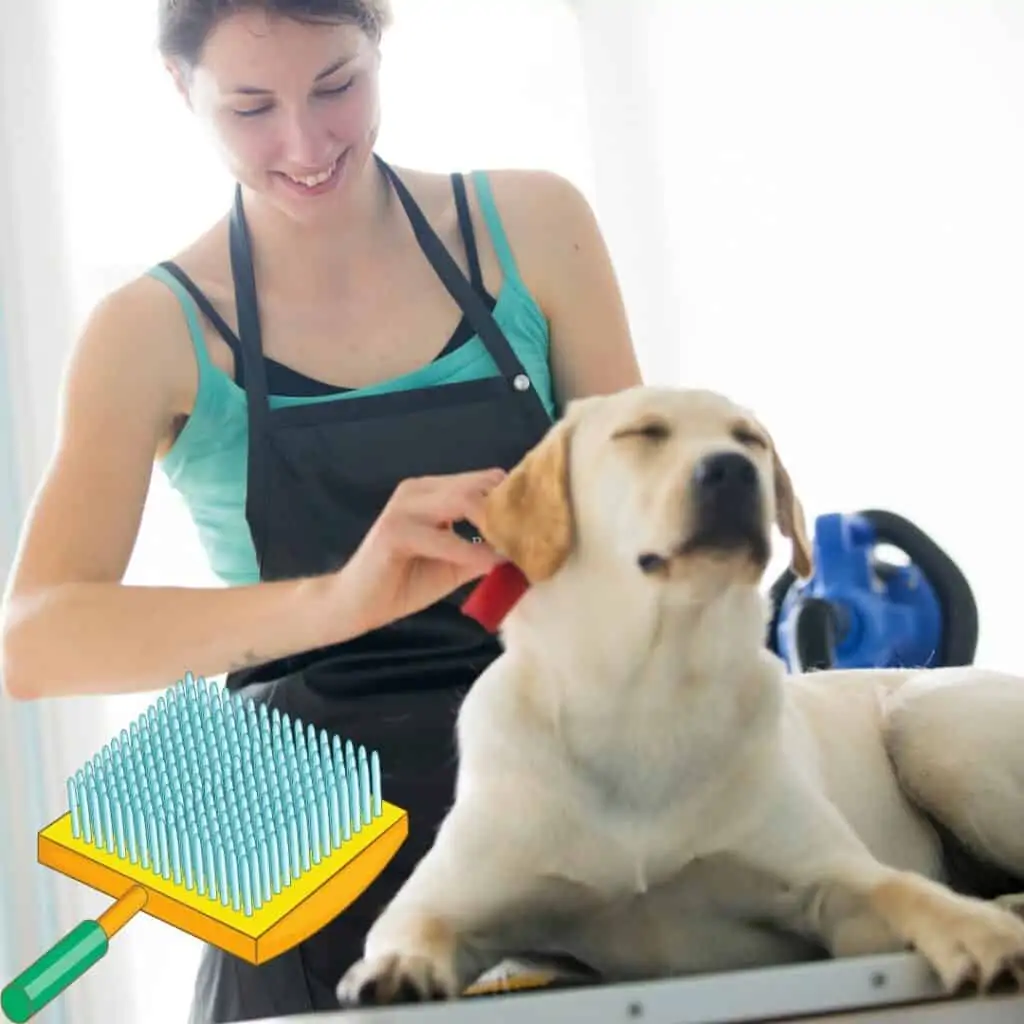
Your Puppy Is Tired
Just like a human baby, puppies become fussy and cranky when they do not get enough sleep. Typically, puppies require between 16 to 18 hours of sleep every day. When they do not get enough sleep, they may begin exhibiting destructive behaviors such as excessive biting.
Dog Zoomies
Also known as Frenetic Random Activity Periods (FRAPS), dog zoomies are occasional energy explosions in puppies that last for a very short time. Puppies who have the zoomies tend to show behaviors such as barking and biting excessively, running and spinning around, and so on.
A lack of exercise is the leading cause of dog zoomies. These destructive behaviors are a way for your puppy to release that pent-up energy it has held in for quite some time.
How to Train Your Lab Puppy to Stop Biting
While puppy biting is necessary, especially when your pup’s adult teeth are growing, it can be uncomfortable and dangerous when not addressed. Here are a few ways on how to train your puppy to stop biting.
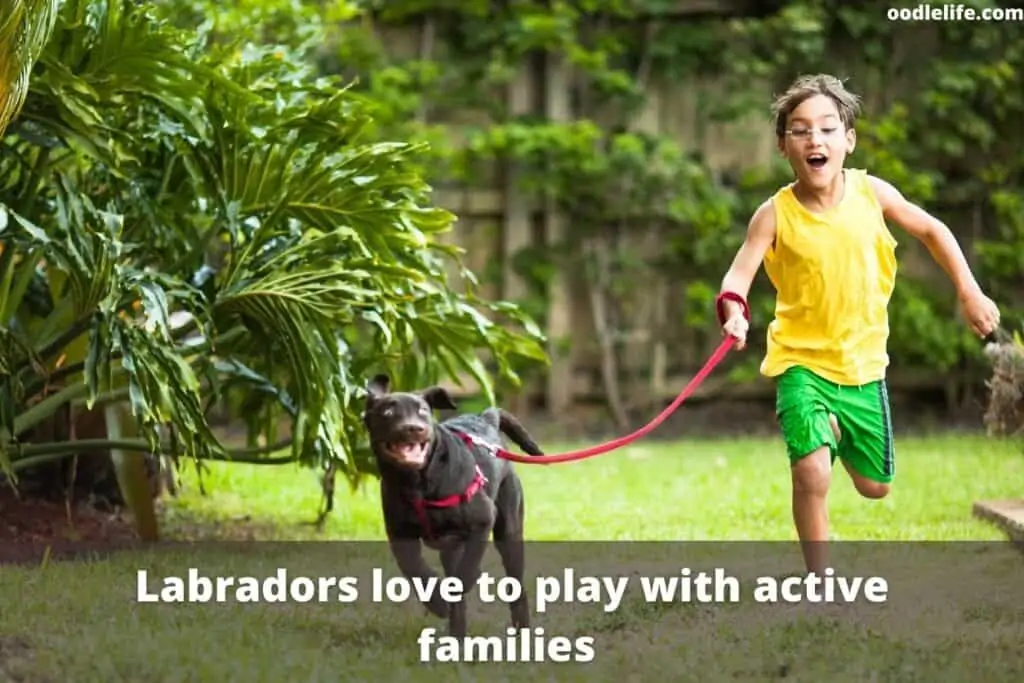
Try Bite Inhibition
Bite inhibition is one of the most common methods puppy owners use to train their pups to stop biting. This is simply training it on how to control the force of its bites.
Of course, you cannot entirely train a puppy to stop biting because it is part of how they socialize. Usually, puppies nip at each other while playing with their littermates or mothers. When your pup bites another puppy too hard, it will yelp, scaring your puppy enough to let go.
You can take advantage of this behavior and teach your dog how much biting is acceptable. So, when your pup bites your hand or finger too hard, you can let out a high-pitched “Ow!” or yelp, signifying it to let go.
When it releases you, try ignoring it for approximately 10 to 20 minutes, then continue petting and playing with it.
However, it is important not to abruptly pull away from your puppy’s bite because that may trigger its instinct to start chasing, making the biting habit worse.
You should also be aware that repeating the “biting and yelping process” too frequently may become ineffective as your puppy may think that you are playing, enhancing the habit.
Try Using Positive Punishment
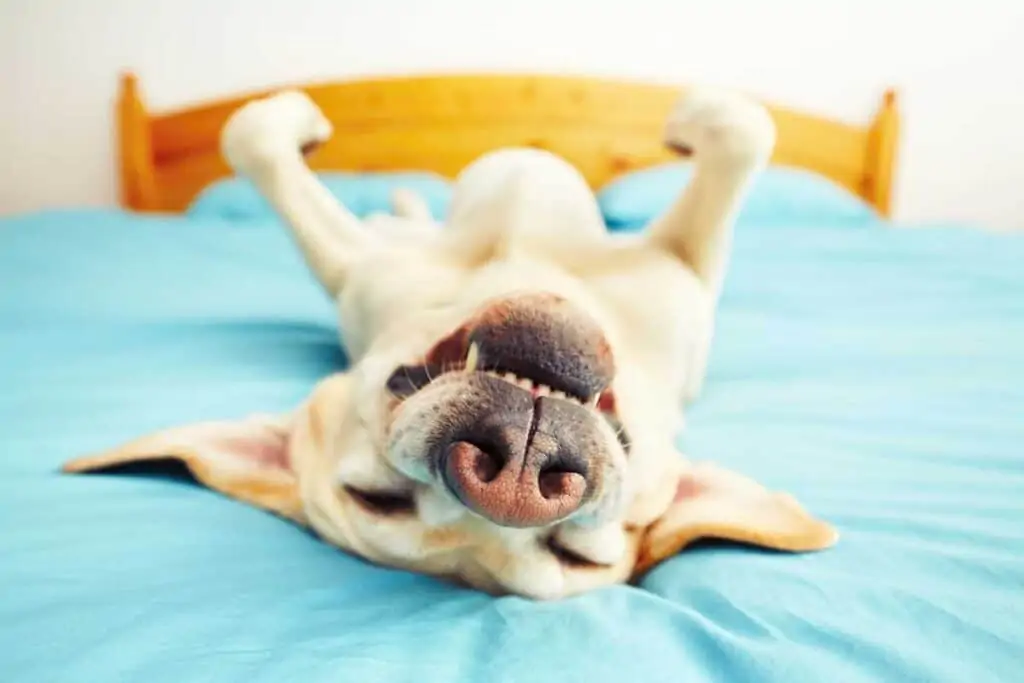
Another way to train your puppy to stop biting is by using positive punishment. This is letting your dog know it’s “game over” when it bites you. Apart from yelping when it bites, you can also use a calm but firm voice to make it stop that behavior.
It’s important to remember that you shouldn’t yell or scream at your dog when it bites you. Unlike humans, yelling at your puppy makes it more hyperactive and excited, making the habit even worse.
Putting your puppy in “time-out” is also a good way to train it to stop biting. When your puppy is biting excessively, you can gently place it in its cage for a couple of minutes until it calms down.
However, it is essential to use this method sparingly to prevent your dog from developing negative responses.
One of the most common effects of too much “time-out” is when your puppy starts seeing it as a bad thing. This may lead to your pup acting up when it sees someone walking towards it, which can be dangerous.
It is also essential to reward your puppy when it calms down and stops biting, as it will help reinforce that positive behavior.
Redirect Their Behavior
Refocusing your puppy’s urge to bite is another effective way to make it stop nipping at you.
If your pup tries biting your finger or hand, you can pull it away quickly before it does and provide a chewy toy for it to nip on instead. Doing so will help teach your puppy that biting human skin isn’t acceptable.
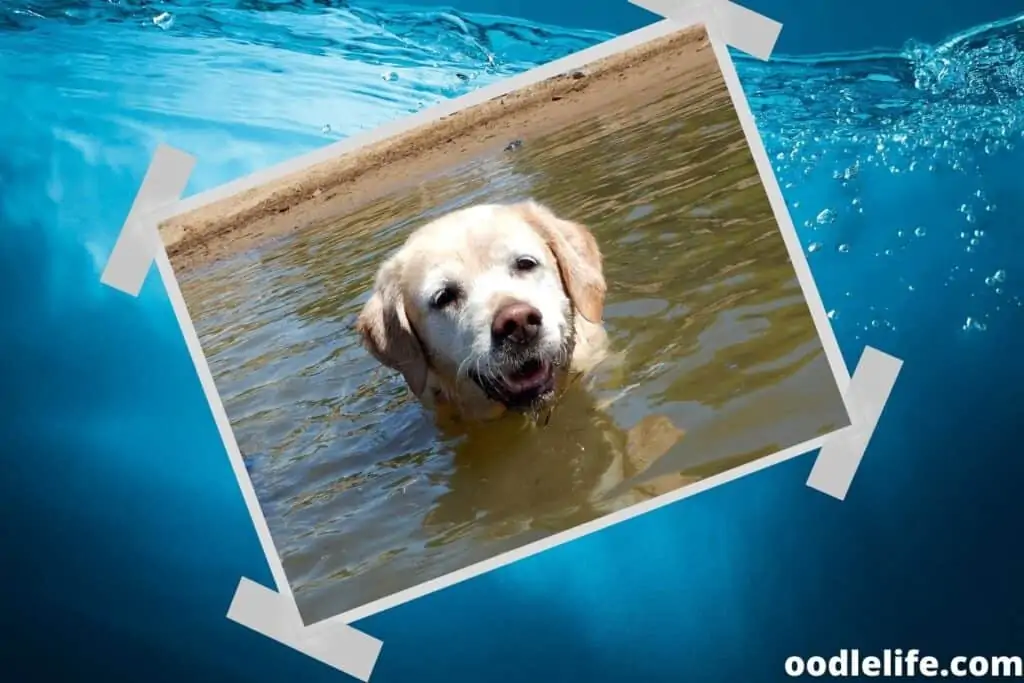
Provide Your Puppy With a Chew Toy
Giving your pup a chew toy to nip on will help it learn to refocus its urge to bite on the toy and not you or your furniture. However, there are many things to consider when shopping for the ideal chew toy for your puppy.
The most common one is the intensity of your pup’s biting. If you notice that your puppy shreds or destroys something it bites on within minutes, you should get a chew toy made of rubber or hard plastic.
When choosing a chew toy for your furry little pal, make sure it is a good size for your puppy. Go for a toy that is not too big for your pup to carry and not too small that it can swallow and get lodged in its throat.
It is also recommendable to get a treat-toy for your puppy. These toys allow you to stash some treats in them to elicit more interest. Such toys will help keep your puppy engaged enough to stop chewing on things around your home.
Allow Your Puppy to Socialize With Other Puppies
Arranging a playdate with other puppies is also a great way to train your puppy to stop biting.
Like we mentioned earlier, puppies bite and nip at each other when playing. When one pup bites the other one too hard, it yelps, making the puppy stop nipping. This response helps your dog learn how much force of a bite is unacceptable.
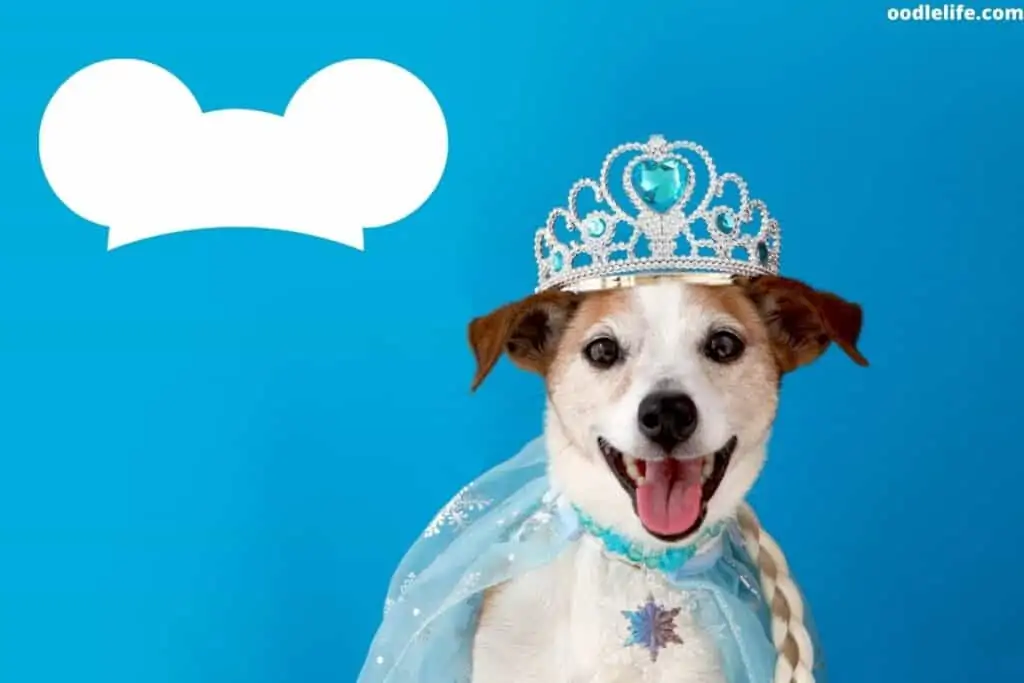
Conclusion
While puppy biting is normal, it can become dangerous and uncomfortable as they grow older. Thus, it’s recommended that pet owners address this behavior early while they have the opportunity.
If you suspect that your lab puppy’s biting behavior is overly excessive or abnormal, it is best to consult a professional animal behaviorist to help you train your pet.